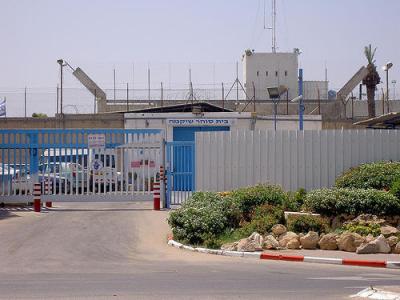
Hundreds of Palestinian minors imprisoned for stone-throwing

A July report by the Israeli human rights group B'Tselem finds that of more than 800 Palestinian youths under the age of 18 charged with throwing stones in the West Bank over a six-year period, only one was acquitted. From the beginning of 2005 to the end of 2010, at least 835 Palestinian minors were arrested and tried in military courts in the West Bank on charges of stone throwing. Thirty-four of them were aged 12-13, 255 were 14-15, 546 were 16-17. Only one of the 835 was acquitted; all the rest were found guilty.
The report, entitled "No Minor Matter: Violation of the Rights of Palestinian Minors Arrested by Israel on Suspicion of Stone-Throwing," finds:
Palestinian minors charged with criminal offenses are tried under the military legislation applying in the West Bank, which grants them very few of the special rights relating to persons their age. These protections, such as separation from adults during detention and imprisonment, are not always maintained. The same is true regarding protections prescribed in the military legislation for all suspects that are especially important in the case of minors, such as the right to consult with an attorney. The military legislation dealing with minors does not conform to international and Israeli law, which acknowledge that the minor’s age affects his criminal responsibility and the manner in which he experiences arrest, interrogation, and imprisonment, and which assume that these experiences might harm the minor’s development. Consequently, under international law and Israeli law, suspected offenders who are minors are given special protections, their parents must be allowed to be present during their child’s interrogation, and their arrest and imprisonment are viewed as a last resort.
In November 2009, the Military Youth Court was established in the West Bank. The court was empowered to hear offenses committed by minors under age 16. The military judges, on their own initiative, expanded the jurisdiction of the court to cover all minors, i.e., up to age 18. A few judges expressed, in their judgments, their belief that the military justice system should try minors in accordance with the standard practice in juvenile courts around the world. The president of the Military Court of Appeals added that the military courts must operate in the spirit of the Israeli Youth Law, even though the Youth Law itself is not incorporated in the military legislation. Despite these declarations, institution of the Military Youth Court has brought limited change, and serious infringement of the rights of minors appearing before it continues.
And the convicted youths are overwhelmingly sentenced to prison—despite the fact that imprisonment of minors is illegal in Israel:
Imprisonment, rather than an alternative punishment, is the principal penalty chosen by the military courts. In the period 2005-2010, 93 percent of the minors convicted of stone throwing were given a prison sentence, its length ranging from a few days to 20 months. Nineteen minors under age 14, who accounted for 60 percent of this age group who were convicted of stone throwing during this period, were given a prison sentence. Under the law in Israel, incarceration of minors under age 14 is prohibited.

